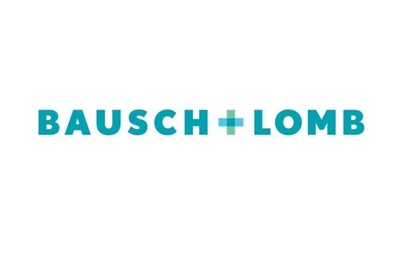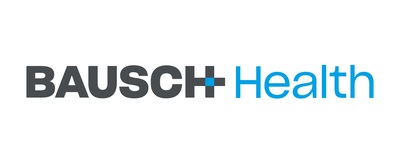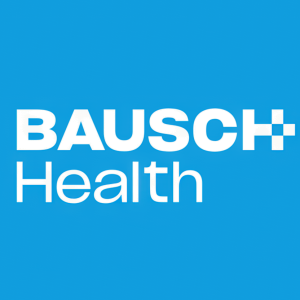Bausch + Lomb Announces Statistically Significant Topline Results from the Second Phase 3 Trial Of NOV03 (perfluorohexyloctane) in Dry Eye Disease Associated with Meibomian Gland Dysfunction
Bausch Health and Novaliq announced statistically significant topline results from the MOJAVE Phase 3 trial of NOV03, a novel eye drop treatment for dry eye disease associated with Meibomian gland dysfunction. The trial met primary endpoints, showing significant improvements in total corneal staining and dryness scores at day 57, p < 0.001. These findings reaffirm the safety and efficacy observed in earlier trials. A New Drug Application to the FDA is anticipated in 2022, potentially marking a significant advancement in treating millions suffering from dry eye disease.
- Statistically significant results from MOJAVE Phase 3 trial for NOV03.
- Efficacy in improving corneal staining and dryness scores confirmed.
- Safety profile appears strong with low incidence of adverse events.
- Intended filing of New Drug Application to FDA in 2022 to advance treatment.
- None.
LAVAL, QC and HEIDELBERG, Germany, Sept. 30, 2021 /PRNewswire/ -- Bausch + Lomb, a leading global eye health business of Bausch Health Companies Inc. (NYSE/TSX: BHC) ("Bausch Health") and Novaliq GmbH ("Novaliq"), a biopharmaceutical company focusing on first- and best-in-class ocular therapeutics, today announced statistically significant topline data from the second Phase 3 (MOJAVE) trial evaluating the investigational drug NOV03 (perfluorohexyloctane) as a first-in-class eye drop with a novel mechanism of action to treat the signs and symptoms of dry eye disease (DED) associated with Meibomian gland dysfunction (MGD). The companies announced statistically significant topline data from the first Phase 3 trial (GOBI trial) in April 2021.
"The findings from this second Phase 3 trial reinforce the results of the first Phase 3 trial and further supports the efficacy and safety profile of NOV03 as a potential important new treatment option for the millions of people living with dry eye disease associated with MGD," said Joseph C. Papa, chairman and CEO, Bausch Health. "These results mark another important milestone in bringing NOV03 to market as a potential first-in-class treatment, and we anticipate filing a New Drug Application to the U.S. Food and Drug Administration in 2022."
Dry eye disease is one of the most common ocular surface disorders, causing discomfort for millions of Americans. MGD is a major cause of the development and progression of evaporative DED, which is caused by a deficient tear film lipid layer that leads to increased tear evaporation.1,2
The MOJAVE trial met both primary sign and symptom endpoints:
- Change from baseline in total Corneal Fluorescein Staining (tCFS), a measure of assessing damage to the eye, achieved statistical significance at day 57, using the National Eye Institute (NEI) scale, compared to control [p < 0.001].
- Change from baseline in Dryness score achieved statistical significance at day 57, as rated on a visual analogue scale (VAS) ranging from 0-100 (0 = no dryness; 100 = maximum dryness), compared to control [p < 0.001].
The MOJAVE trial also met all of its secondary endpoints, showing statistically significant improvements in each of the signs and symptoms of DED associated with MGD that were evaluated.
"We are extremely pleased by the consistency of the results, which reaffirm the safety and efficacy results for this investigational drug previously demonstrated in a Phase 2 trial and the first Phase 3 trial. This underscores the potential impact NOV03 could have, if approved, in addressing an unmet medical need for the millions of patients with dry eye disease associated with MGD," said Christian Roesky, Ph.D., CEO, Novaliq. "Together with Bausch Health and Bausch + Lomb, we are now one step closer to making this potential novel treatment option available for patients in the United States."
To develop drugs for the treatment of dry eye, the U.S. Food and Drug Administration (FDA) requires companies to demonstrate that safety and efficacy has been achieved in at least two adequate and well-controlled, multicenter, independent trials. To demonstrate the efficacy of NOV03, the FDA agreed that corneal staining is an objective sign and the dryness score fullfils the criteria of a subjective symptom. The clinical results of the previous Phase 2 (SEECASE) and both Phase 3 trials (GOBI and MOJAVE) are very consistent in potentially demonstrating the efficacy of NOV03 to reduce both the signs and symptoms of dry eye disease compared to the control saline groups.
"With these results, consistent statistically significant efficacy, safety and tolerability have now been demonstrated in both NOV03 Phase 3 trials, as well as in the Phase 2 trial," said John Sheppard, M.D., president of Virginia Eye Consultants, professor of Ophthalmology at the Eastern Virginia Medical School, Norfolk, Va., and trial investigator. "If approved, NOV03 would help address dry eye disease associated with MGD for the growing number of dry eye disease patients seen every day in clinical practice, offering eye care professionals a promising new therapeutic approach."
The clinical development program for NOV03 is expected to conclude with an ongoing multi-center, open-label, single-arm, 12-month safety extension trial (KALAHARI).
Summary of Phase 3 MOJAVE Study Results
The results were based on data from 620 participants aged 18 years and older who were randomized to either receive treatment with NOV03 four times daily or administration of placebo four times daily.
The prospective, multi-center, randomized, double-masked, saline-controlled Phase 3 study, which was conducted at 40 locations in the United States, also included four prespecified secondary endpoints. All four demonstrated statistical superiority over placebo: change from baseline in tCFS at day 15 [p = 0.001]; change from baseline in dryness score at day 15 [p = 0.001]; change from baseline in VAS burning/stinging at day 57 [p = 0.001]; and change from baseline in central Corneal Fluorescein Staining (cCFS) at day 57 [p < 0.001].
NOV03 was well tolerated with instillation site reactions below
About NOV03 (perfluorohexyloctane) Ophthalmic Solution
NOV03 is an investigational, proprietary, water-free and preservative-free solution, based on patented EyeSol® technology from Novaliq GmbH.3 In 2019, Bausch Health and Bausch + Lomb acquired an exclusive license for the commercialization and development of NOV03 in the United States and Canada, and together, they announced in November 2020 that they had initiated the second of two Phase 3 studies to evaluate NOV03. In January 2021, they announced a Phase 2 clinical study (SEECASE) evaluating NOV03 was published in Cornea: The Journal of Cornea and External Disease.4 In April 2021, they announced positive topline data from the first Phase 3 study (GOBI).
About Novaliq
Novaliq is a biopharmaceutical company focusing on the development and commercialization of first- and best-in-class ocular therapeutics based on EyeSol®, the worldwide first water-free technology. Novaliq offers an industry-leading portfolio addressing today's unmet medical needs of millions of patients with eye diseases. Novaliq GmbH is headquartered in Heidelberg, Germany and Novaliq Inc. has an office in Cambridge, MA, USA. The long-term shareholder is dievini Hopp BioTech holding GmbH & Co. KG, an active investor in Life and Health Sciences companies. More on www.novaliq.com.
About Bausch + Lomb
Bausch + Lomb, a leading global eye health business of Bausch Health Companies Inc., is solely focused on helping people see. Its core businesses include over-the-counter products, dietary supplements, eye care products, ophthalmic pharmaceuticals, contact lenses, lens care products, ophthalmic surgical devices and instruments. Bausch + Lomb develops, manufactures and markets one of the most comprehensive product portfolios in the industry, which is available in approximately 100 countries. For more information, visit www.bausch.com.
About Bausch Health
Bausch Health Companies Inc. (NYSE/TSX: BHC) is a global company whose mission is to improve people's lives with our health care products. We develop, manufacture and market a range of pharmaceutical, medical device and over-the-counter products, primarily in the therapeutic areas of eye health, gastroenterology and dermatology. We are delivering on our commitments as we build an innovative company dedicated to advancing global health. For more information, visit www.bauschhealth.com and connect with us on Twitter and LinkedIn.
Forward-looking Statements
This news release may contain forward-looking statements, which may generally be identified by the use of the words "anticipates," "hopes," "expects," "intends," "plans," "should," "could," "would," "may," "believes," "estimates," "potential," "target," or "continue" and variations or similar expressions. These statements are based upon the current expectations and beliefs of management and are subject to certain risks and uncertainties that could cause actual results to differ materially from those described in the forward-looking statements. These risks and uncertainties include, but are not limited to, the risks and uncertainties discussed in Bausch Health's most recent annual report on Form 10-K and detailed from time to time in Bausch Health's other filings with the U.S. Securities and Exchange Commission and the Canadian Securities Administrators, which factors are incorporated herein by reference. They also include, but are not limited to, risks and uncertainties caused by or relating to the evolving COVID-19 pandemic, and the fear of that pandemic and its potential effects, the severity, duration and future impact of which are highly uncertain and cannot be predicted, and which may have a material adverse impact on Bausch Health, including but not limited to its project development timelines, and costs (which may increase). Readers are cautioned not to place undue reliance on any of these forward-looking statements. These forward-looking statements speak only as of the date hereof. Bausch Health undertakes no obligation to update any of these forward-looking statements to reflect events or circumstances after the date of this news release or to reflect actual outcomes, unless required by law.
References
- Leonardi A, Modugno RL, Salami E. Allergy and Dry Eye Disease. Ocul Immunol Inflamm. 2021 Feb 5:1-9. doi: 10.1080/09273948.2020.1841804. Epub ahead of print. PMID: 33544639. Available at https://pubmed.ncbi.nlm.nih.gov/33544639/. Accessed 9/9/21
- Findlay Q, Reid K. Dry eye disease: when to treat and when to refer. Aust Prescr. 2018;41(5):160-163. doi:10.18773/austprescr.2018.048. Available at https://www.ncbi.nlm.nih.gov/pmc/articles/PMC6202299/ Accessed 8/13/21
- In December 2019, Bausch Health acquired the rights from Novaliq GmbH to pursue development and commercialization of NOV03 for DED and combination products based on NOV03 in additional ophthalmic indications in the United States and Canada.
- Tauber J, Wirta DL, Sall K, Majmudar PA, Willen D, Krösser S; SEECASE study group. A Randomized Clinical Study (SEECASE) to Assess Efficacy, Safety, and Tolerability of NOV03 for Treatment of Dry Eye Disease. Cornea. 2020 Dec 22; Publish Ahead of Print.
Any product/brand names and/or logos are trademarks of the respective owners.
© 2021 Bausch & Lomb Incorporated or its affiliates.
Novaliq Media Contact:
Simone Angstmann-Mehr
info@novaliq.com
Bausch Health Investor Contact:
Arthur Shannon
arthur.shannon@bauschhealth.com
(514) 865-3855
(877) 281-6642 (toll free)
Bausch Health Media Contact:
Lainie Keller
lainie.keller@bauschhealth.com
(908) 927-1198
![]() View original content to download multimedia:https://www.prnewswire.com/news-releases/bausch--lomb-announces-statistically-significant-topline-results-from-the-second-phase-3-trial-of-nov03-perfluorohexyloctane-in-dry-eye-disease-associated-with-meibomian-gland-dysfunction-301388415.html
View original content to download multimedia:https://www.prnewswire.com/news-releases/bausch--lomb-announces-statistically-significant-topline-results-from-the-second-phase-3-trial-of-nov03-perfluorohexyloctane-in-dry-eye-disease-associated-with-meibomian-gland-dysfunction-301388415.html
SOURCE Bausch Health Companies Inc.
FAQ
What are the results of the MOJAVE Phase 3 trial for NOV03 (BHC)?
What is NOV03 and its significance?
When will Bausch Health file for FDA approval for NOV03?
What was the primary endpoint of the MOJAVE trial (BHC)?









